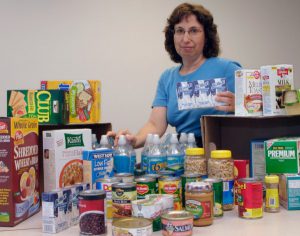June 1st marks the start of hurricane season, and it continues through November 30th of each year. This year, hurricane season comes on the tail of COVID-19, and all the precautionary measures put in place to prevent the spread of that disease. So what do we do this year?
The good news: hurricane preparedness should be consistent from year to year, so many of the steps described here will seem familiar to what has been recommended in years past.
- Start with a plan:
It’s important for households, friends, and family to understand what to do in case of an emergency. Some things to consider include hurricane preparedness kits, methods of communication during a storm, shelter plan, and evacuation routes. Consider the specific needs of your household, and assign responsibilities in advance.
- Prepare a kit:
Typically, your preparedness kit should have enough food, water and other supplies to last for at least 72 hours (3 days). It is important to think through your kit well before a storm is confirmed to head in your direction, and prepare wisely. It is not uncommon to see long lines and depleted shelves as storms come near, so obtaining your kit materials in advance could help prevent the hassle and crowds.
Keep in mind the dietary needs of those in your household. It is essential to have enough water and non-perishable food to sustain your body properly for at least three days. Have at least one gallon of water per person per day for drinking and sanitation.
Re-think the sugary and salty snacks, and focus instead on:

- Whole grain options (cereals, breads, crackers, oats)
- Vegetables (canned, low in sodium, minus the cream)
- Fruits (dried or canned, in their own juices instead of syrup)
- Protein sources (nuts, seeds, peanut butter, canned meats and fish, and low-sodium canned beans)
- Dairy sources (powdered or single-serving, shelf-stable milk, or milk alternatives).
Don’t forget to have enough food and water for your pets, too.
- Practice your plan:
Keep your emergency preparedness kit handy and ensure your household knows what to do. Practice gathering your kit, medications, pets, and other essentials and ensure they all fit in your vehicle if you are in an area likely to evacuate.
Use a printable checklist as you begin to prepare for this hurricane season. Keep in mind, due to COVID-19, your family may need to include face masks and additional cleaning and personal hygiene products as we continue to minimize the spread of this disease.
For additional information on items to include on your kit, visit www.ready.gov.
 0
0
